Archbishop Eamon Martin will deliver the following address at a 3.00pm service today in Saint Anne’s Cathedral, Belfast. The service takes place during the annual Week of Prayer for Christian Unity on the theme, ‘Celebrating our Reconciling Vision of Hope’.
The service celebrates the centenary of the Irish Council of Churches and 50 years since Ballymascanlon peace talks, and will be livestreamed on www.facebook.com/belfastcathedral
 “Might we in the Churches offer to help develop an agreed truth recovery process to address the legacy of pain and mistrust that continues to hang over us?”
“Might we in the Churches offer to help develop an agreed truth recovery process to address the legacy of pain and mistrust that continues to hang over us?”
“Peace, reconciliation and forgiveness on this island can only be progressed if we bring to light the truths about our troubled past that remain hidden and festering”
Address by Archbishop Eamon Martin
‘Be-Longing’, it says: ‘Praying for Unity amidst injustice.’ Today’s anniversary celebrations also invite us to look to the future with a holy ‘longing’ for greater togetherness and deeper friendship.
Although I was only eleven years old in September 1973, somewhere lodged in my boyhood memory are news images of Church leaders gathering for an historic meeting – while others marched in protest. I knew instinctively that something special was happening at Ballymascanlon – it was a beacon of hope in dark times.
Some years afterwards Cahal Daly and Stanley Worrall described a sense of “excitement” and “momentous new departure” as the delegates convened at Ballymascanlon; but they also admitted their anxiety that perhaps the Churches might have been too ambitious and it all might fail (see Cahal Daly and Stanley Worrall, Ballymascanlon, An Irish Venture in Inter Church Dialogue, CJL/Veritas 1978, p 10).
But it couldn’t fail, for its vision was inspired by the longing of our Saviour who prayed, “That they may be one, just as you, Father, are in me, and I in you (John 17:21).”
That high priestly prayer of Jesus is the motivation behind all our working and praying and hoping together as Churches; and the reason why we “be longing” that we may be one! For decades those words, ‘That they may be one’, have guided visionary people from our various traditions to boldly confront the reality and pain of our divisions and to set out on a pilgrim journey, daring to dream of greater unity.
Sadly, it hasn’t always been so. On Saint Patrick’s Day 2021 our Church leaders lamented that sometimes in our history we have “failed to bring to a fearful and divided society that message of the deeper connection that binds us, despite our different identities, as children of God” (Church Leaders’ message: In Christ We Journey Together of 17 March 2021).
Today, then, let us re-commit to being the peacemakers, the healers, the reconcilers that our Saviour longed for his followers to be, even though we know that our ongoing pilgrimage towards unity will always involve risk – just as it did for the pioneers of the Inter-Church bodies that we are commemorating today.
Just four months ago, at the Memorial Service for Queen Elizabeth II here in Saint Anne’s Cathedral, my brother Archbishop John, reminded us that “Reconciliation is about the restoration of broken relationships. And the word should never be cheapened by pretending it’s an easy thing to achieve … Reconciliation requires the greatest of all religious virtues, love; and it requires the greatest of all civic virtues, courage”.
I also believe Reconciliation requires trust. And trust is perhaps all the more important on this island where people from different traditions have often regarded one another with fear and suspicion. I thank God today for the trust and friendship that has already been built up between us – fellow pilgrims – on the path to unity.
At a recent Irish Inter Church Meeting it was agreed that “our friendship allows us to go together places where it might be difficult for us to go as individuals”. In recent years trust has enabled us to facilitate together shared spaces for encounter, dialogue, healing, conversion and reconciliation. There have been initiatives at Church leadership level and – even more importantly – on the ground, in partnerships between groups of Christians at parish, congregation and community level. We long for more of this. For it is only in safe, shared and prayerful spaces, inspired by the Word of God, that the truth of our divided past can be sensitively unfolded and hopes enkindled for renewed encounter and healthy relationships on this island.
Three years ago, in his message for the World Day of Peace, Pope Francis said, “(every) peace process requires enduring commitment. It is a patient effort to seek truth and justice, to honour the memory of victims and to open the way, step by step, to a shared hope stronger than the desire for vengeance (Message for the 2020 World Day of Peace p8).”
Peace, reconciliation and forgiveness on this island can only be progressed if we bring to light the truths about our troubled past that remain hidden and festering, and engage in respectful conversations across our communities about what we mean by a shared future. It may seem ambitious, but might we in the Churches offer to help develop an agreed truth recovery process to address the legacy of pain and mistrust that continues to hang over us? And might our Churches also work together to create spaces for dialogue at parish, congregation and community level so that all voices can be fully heard about the kind of society and values we want for our children and grandchildren.
Such initiatives are essentially about deep and intentional listening to ‘the other’ who differs from us – and really ‘getting’ where they are coming from. The Churches have no desire to dominate such conversations. We are merely servants, inspired by the words of the prophet Micah in this afternoon’s reading:
“What does the Lord require of you,
but to do justice, and to love kindness,
and to walk humbly with
your God (Micah 6:8).”
The theme for this year’s Christian Unity Week calls on Churches not only to connect with each other, but also to engage with the questions and demands of justice – and to do so together – not separately. A manifesto for the next fifty years might include: Churches together confronting homelessness; together responding in practical ways to racism and sectarianism; Churches together tackling human trafficking, exploitation and poverty; Churches together welcoming and providing hospitality for migrants and those seeking refuge among us; Churches together addressing climate injustice; Churches together upholding the right to life and dignity of every human person.
To engage in such issues – together, and with honesty – may uncover ways in which we ourselves might be supporting or facilitating unjust systems and structures. But it will also bring us closer in Christ, and strengthen our sense of common Christian purpose.
It is a credit to our predecessors, the pioneers of Ballymascanlon, that we gather today as much closer companions on the Way; looking around the Cathedral this afternoon we see brothers and sisters – friends – in Christ who can share each other’s joys and burdens, successes and vulnerabilities.
So let us journey onwards with a reconciling vision of hope, singing together an anthem of “be-longing”: “There is one Lord, one faith, one baptism, one God and Father of all, who is over all and through all and in all (Ephesians 4:5-6).”
Amen.
+ Archbishop Eamon Martin, Archbishop of Armagh, Primate of All Ireland.
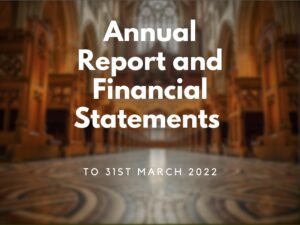 The Annual General Meeting of St Patrick’s Archdiocesan Trust Limited (Trust) was held on Thursday 14th December 2022, in which the audited Annual Report and Financial Statements to 31st March 2022 was presented. Presenting at the meeting were Archbishop Eamon Martin (Director of the Trust), Mr John McVey (Secretary to the Trust) and Mrs Roisin Traynor (Audit Manager – Cavanagh Kelly Accountants).
The Annual General Meeting of St Patrick’s Archdiocesan Trust Limited (Trust) was held on Thursday 14th December 2022, in which the audited Annual Report and Financial Statements to 31st March 2022 was presented. Presenting at the meeting were Archbishop Eamon Martin (Director of the Trust), Mr John McVey (Secretary to the Trust) and Mrs Roisin Traynor (Audit Manager – Cavanagh Kelly Accountants).


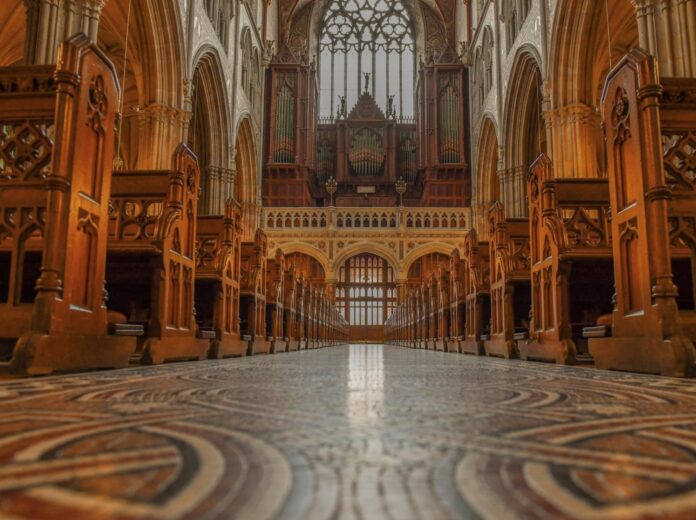


 On Sunday 19th February, the Catholic Church marked the Day of Prayer for Temperance which offered an opportunity to reflect on our relationship with addiction, and to pray for all who suffer from any form of addiction and for those who work to alleviate its detrimental effects on individuals, families and communities.
On Sunday 19th February, the Catholic Church marked the Day of Prayer for Temperance which offered an opportunity to reflect on our relationship with addiction, and to pray for all who suffer from any form of addiction and for those who work to alleviate its detrimental effects on individuals, families and communities.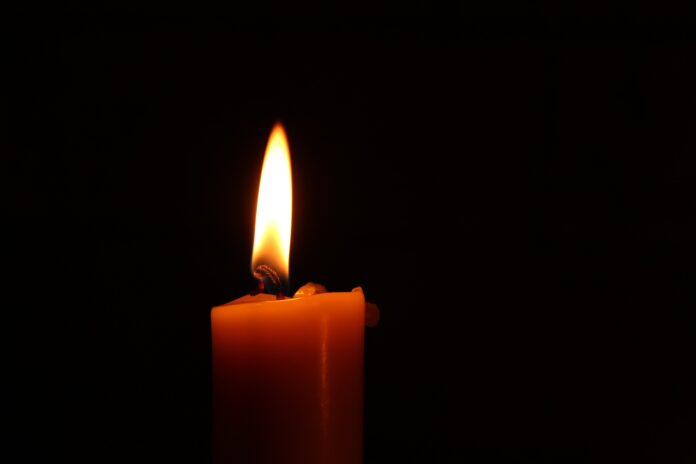
 The proposal for a universal day of prayer was initially made in 2016 to the Vatican’s Pontifical Commission for the Protection of Minors (PCPM) by a survivor of clerical abuse. At the time a press release from the Commission stated, “In the experience of our members, victims/survivors have often expressed a desire for prayer as an important element in their healing process.”
The proposal for a universal day of prayer was initially made in 2016 to the Vatican’s Pontifical Commission for the Protection of Minors (PCPM) by a survivor of clerical abuse. At the time a press release from the Commission stated, “In the experience of our members, victims/survivors have often expressed a desire for prayer as an important element in their healing process.”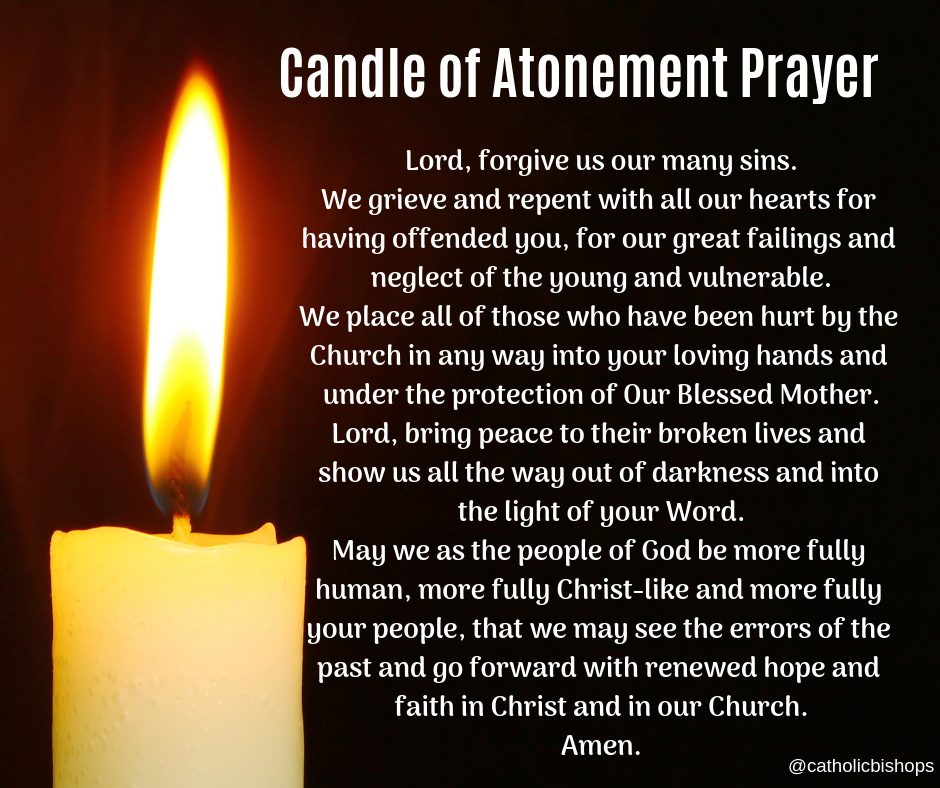
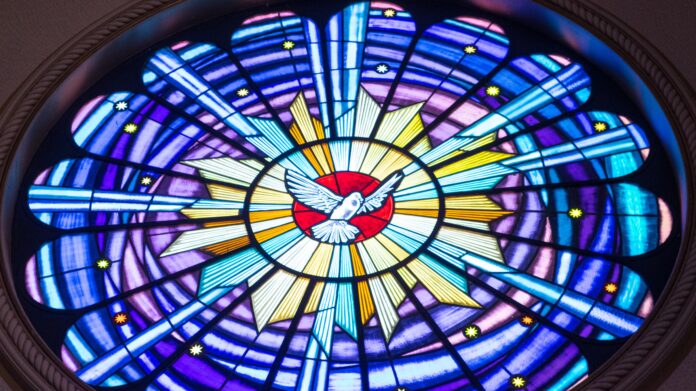



 ‘Take care of him: compassion is a synodal exercise of healing’
‘Take care of him: compassion is a synodal exercise of healing’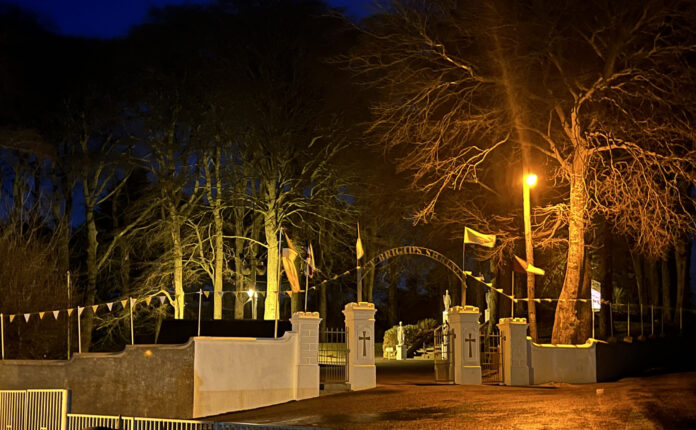
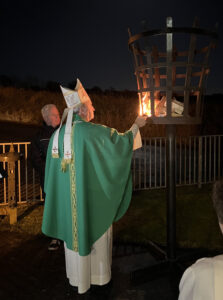 Bishop Michael Router, Auxiliary Bishop of the Archdiocese of Armagh’s homily at mass celebrated at 7.30pm 4th February 2023, Saint Brigid’s Oratory Shrine, Faughart, Co Louth.
Bishop Michael Router, Auxiliary Bishop of the Archdiocese of Armagh’s homily at mass celebrated at 7.30pm 4th February 2023, Saint Brigid’s Oratory Shrine, Faughart, Co Louth. 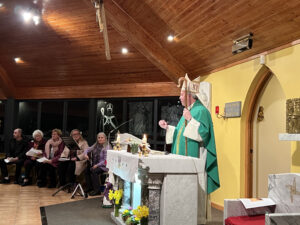
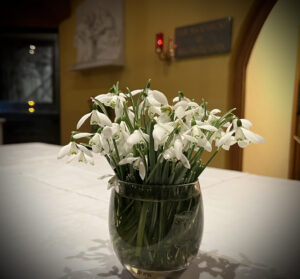
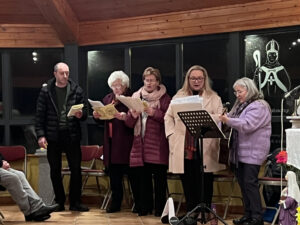

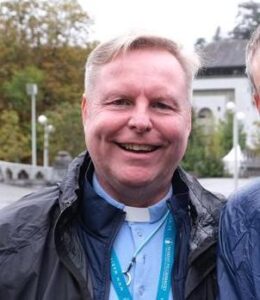

 “Might we in the Churches offer to help develop an agreed truth recovery process to address the legacy of pain and mistrust that continues to hang over us?”
“Might we in the Churches offer to help develop an agreed truth recovery process to address the legacy of pain and mistrust that continues to hang over us?”
You must be logged in to post a comment.